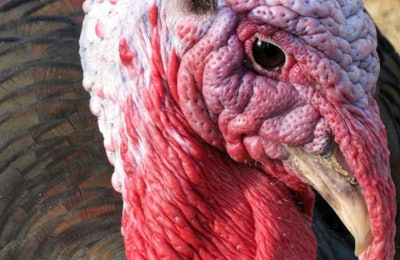
Eight new cases of H7N8 avian influenza have been confirmed by the USDA Animal and Plant Health Inspection Service (APHIS) to be of the low pathogenic variety, while testing is ongoing in a ninth flock that has been confirmed to have H7N8.
APHIS reported the nine new cases on January 16, one day after a case of highly pathogenic avian influenza was reported in a commercial turkey flock in Dubois County Indiana. All cases were confirmed on turkey farms, according to the National Turkey Federation.
These January 16 detections were identified as part of surveillance testing in the control area surrounding the initial highly pathogenic H7N8 avian influenza case in Indiana. See the WATTAgNet 2016 avian influenza outbreak map to track the cases reported so far.
The pathogenicity of a virus refers to its ability to produce disease. Birds with low pathogenic avian influenza (LPAI) often show no signs of infection or only have minor symptoms. HPAI viruses spread quickly and cause high mortality in domestic poultry. H7 LPAI viruses have been known to mutate into HPAI viruses in the past.
“It appears that there was a low pathogenic virus circulating in the poultry population in this area, and that virus likely mutated into a highly pathogenic virus in one flock,” said Dr. John Clifford, USDA Chief Veterinarian. “Through cooperative industry, state and federal efforts, we were able to quickly identify and isolate the highly pathogenic case, and depopulate that flock. Together, we are also working to stop further spread of the LPAI virus, and will continue aggressive testing on additional premises within the expanded control area to ensure any additional cases of either HPAI or LPAI are identified and controlled quickly.”
APHIS continues to work closely with the Indiana State Board of Animal Health and the affected poultry industry on a joint incident response. State officials quarantined the additional affected premises and depopulation of birds has already begun.
No new presumptive cases have been identified since January 16.

















